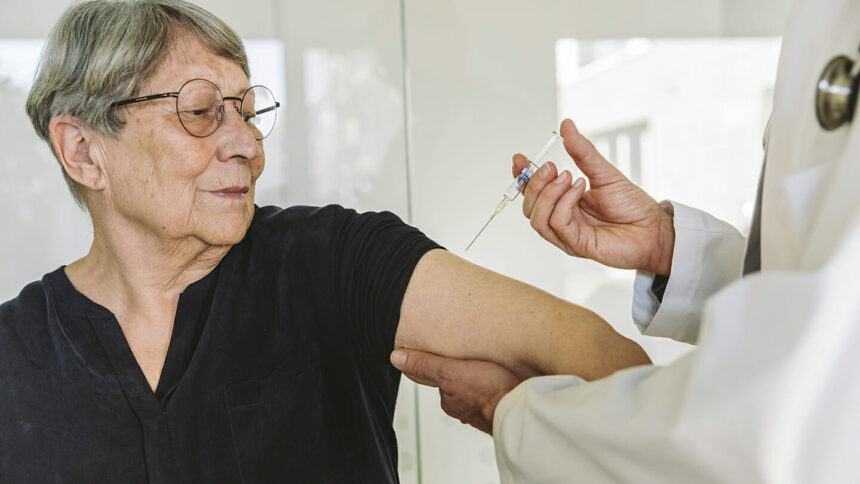
A recent phase 1 trial that compared a potential vaccine for Parkinson’s disease to a placebo found the vaccine to be generally safe and that patients tolerated it well, according to a new study. Researchers said the agent may be able to stop or reverse the course of the disease.
The report was published in Nature Medicine on June 20. In it, researchers detail how the drug, UB-312, can slow down how the disease progresses. It’s an immunotherapy agent, targeting alpha-synuclein — a protein that builds up in the brain. Researchers tested levels of the protein in blood and cerebrospinal fluid (CSF) on 20 people who were either healthy or had Parkinson’s disease. Of them, 20 participants received the first and second injection, and 19 got the third because one person had an adverse event. Headache, pain at the injection site and fatigue were the most common side effects.
The researchers stated that to their knowledge, this is the first report showing a positive effect of an investigational therapy of this kind.
“UB-312 is designed to modify the course of Parkinson’s disease by targeting the underlying cause,” Lou Reese, co-founder of Vaxxinity, the Texas-based pharmaceutical company that worked on the study, told Fox News Digital. Investigators from Leiden University Medical Centre in the Netherlands, University of Texas McGovern Medical School, and Mayo Clinic in Rochester, Minnesota, worked on the trial as well.
Enrollees reported better movement after taking the vaccine.
The development comes as Johns Hopkins University researchers reported last month in Nature Communications how Aplp1, a protein on the surface of cells that aids in the spread of alpha-synuclein, connects to Lag3 (a receptor on the outer part of cells) to spread the protein into brain cells. The team noted that an FDA-approved cancer drug also targets Lag3. The study was on mice, so the research is preliminary.
“Now that we know how Aplp1 and Lag3 interact, we have a new way of understanding how alpha-synuclein contributes to the disease progression of Parkinson’s disease,” Xiaobo Mao, PhD, an associate professor of neurology at the Johns Hopkins University School of Medicine and a member of the Institute for Cell Engineering, said in a statement. “Our findings also suggest that targeting this interaction with drugs could significantly slow the progression of Parkinson’s disease and other neurodegenerative diseases.”




